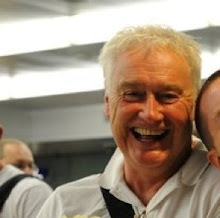
Since breakfast is a la carte I have no idea what else to order as everything on the menu is eggs – but they also bring doorsteps of wholemeal toast, with guava jam which is pretty nice. When the bill comes it runs to five figures of colones and I realise I have no idea of the conversion rate. I’m later relieved to discover there are over 800 to the pound.
It’s too hot to sit in the sun and there’s no shade on the roof terrace which is equipped with two boiling Jacuzzis instead of a cool pool, so I later opt for a trip into town. It’s hard to find something nice to say about San Jose ... any description ends up an endless litany of what it’s not – neither beautiful, architecturally interesting, clean or modern it seems to consist of unremarkable buildings from the Spanish colonial era interspersed with a lot of sixties brutalism, none of which has been keenly restored or preserved.
There’s a central market building with typical ordered displays of fish, meat, fruit and vegetables, but nothing so out of the ordinary as to merit multiple photographs. Nor are the people much to look at: even though I work my way through the commercial and political centre, passing courts, theatres, banks and municipal buildings, I don’t see anyone smartly or fashionably dressed, the typical uniform being trackpants and a baggy vest. Men and women.
The prevalence of American retail brands is almost alarming, there’s so little in San Jose to betray its once-proud Spanish heritage – of course you expect KFC and Macdonalds, but all the hotel, bank, chain store and petrol station brands are from the US and it feels like a poor and dirty county town from Iowa or Indiana.
I make contact with my facebook friend Jose Reyes who was once a lawyer with the International Court of Arbitration in The Hague but has returned to practice in his native Costa Rica and since my hotel is alleged to have the best restaurant in town I make us a reservation for dinner.
Jose has other plans, and instead drives me to a rustic finca high on the hills of Escazu and overlooking the whole of San Jose in the valley. From this distance with the stars above and the city lights below it looks almost attractive. The restaurant is interesting with large groups of people sharing some of the tables, I think at first it might be a tourist trap, but these are all locals or from neighbouring Nicaragua or Guatemala come for the food and the genuine folkloric dancing.

I throw myself into the spirit of the place and eat highly spiced beef, frijoles, plantain, yucca and pico di gallo which I spit out because it’s laced too heavily with the dreaded coriander ... whilst Jose chooses grilled chicken and plain boiled vegetables, it’s an odd exchange of our native cuisines.
The dancing seems good and is wildly applauded by the customers, although there’s not a lot of variety. For the girls, the routine seems based on lifting your skirts to your ears, and shrieking a lot. If that’s all it is, I know a goodly number of chorus boys who could join the Costa Rican national ballet.
We have an entertaining evening but by 10 I’m shattered and whilst I sense Jose might like to take things a bit further, he’s a perfect gent and escorts me back to the hotel where we say goodnight.





